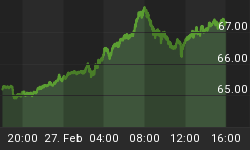The gasoline shortages sparked by the Mexican government’s offensive against fuel theft have now spread to the capital, Sputnik reports, citing a local correspondent who said there were queues at many fuel stations in Mexico City. Oilprice.com reporters confirm that various gas stations in the southern part of the Mexican capital remain closed on Wednesday morning, while small traffic jams were occurring around the ones that are in business.
The state oil company, Pemex, rejected reports of shortages in the capital and urged the population to refrain from panic buying of gasoline and spreading rumors of shortages.
Reports of shortages in some parts of the country emerged earlier this week, from Reuters, which cited a local source as saying they had witnessed several closed fuel stations in the state of Guadalajara during the weekend, with long queues at the ones that were open.
Mexico’s military took control over 58 key fuel installations in the country in late December, including refineries, upon orders by new President Andres Manuel Lopez Obrador, who has vowed to fight corruption and fuel theft within and outside state-run energy company Pemex.
According to Pemex’s own estimates, the losses from fuel theft over the past three years have reached US$7.5 billion (147 billion Mexican pesos). A lot of the theft is conducted by gangs who are quick to resort to violence as they fight among themselves for greater access to state fuels and also engage in extortion of oil workers. According to Lopez Obrador, authorities are also involved in widespread fuel theft. Related: Tesla Breaks Ground On First Factory Outside The U.S.
Now, Pemex says it had reached an agreement with the governors of the states where there have been shortages to resume deliveries, Sputnik reports, adding the state company had also said it had blocked a number of underground pipelines to prevent theft. A survey from 2017 revealed fuel thieves had tapped into pipelines every 1.4 km on average. Pemex’s pipeline network totals 14,000 km.
The Associated Press reports panic is spreading despite Pemex’s pleadings for calm, with the offensive also feeding government critics who say some policies of the Andres Manuel Lopez Obrador cabinet’s policies hark back to a worse past. Yet fuel theft is a serious problem: losses from it jumped from US$500,000 a year in the late 2000s to US$3 billion in 2018, the AP notes.
By Irina Slav & Josh Owens for Oilprice.com
More Top Reads From Safehaven.com
















